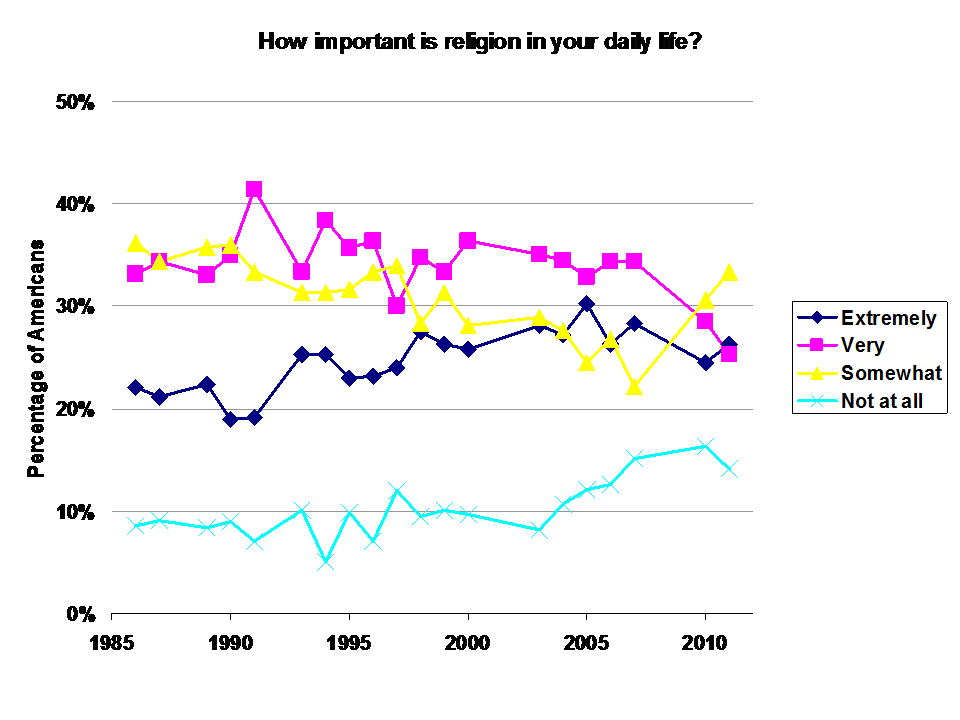Bradley Wright is Associate Professor of Sociology at the University of Connecticut. His two most recent books are Christians are Hate-Filled Hypocrites . . . and Other Lies You’ve Been Told: A Sociologist Shatters Myths From the Secular and Christian Media (included in my Top 10 Books of 2010) and Upside: Surprising Good News About the State of Our World (read my review here). Recently he blogged about an important question: “Is religion less important now than it used to be?”
To answer that question, Wright considers the importance of religion to individual people based on how they have answered a survey question (“How important is religion in your daily life? Is it extremely important, very important, somewhat important, or not at all important?”) over the last twenty-five years.
So What?
Wright finds the data suggest three trends:
- Over the past 25 years, Americans are more polarized regarding the importance of religion. More Americans view it as not at all important in their daily lives, and more Americans view it as extremely important.
- For the most part, the increase in viewing religion as not at all important has come at the expense of those who view it as somewhat important. In other words, some of the people who view religion as moderately important as downgrading it to not important at all.
- The last two years *may* represent a change in the importance of religion. While the most devout religious people (i.e., “extremely important) hold on to their beliefs, there is a significant drop in those who religion as “very” important, with these people appearing to transition to viewing it as only “somewhat” important. It’s too early to tell, however, whether this is a robust long-term trend. If it is, it could portend further polarization—as the middle ground of religious importance disappears.
Questions for reflection:
- How would you answer the survey question (“How important is religion in your daily life? Is it extremely important, very important, somewhat important, or not at all important?”)? Looking back over time, how would your response differ from what it is today?
- Is the degree of importance most Americans give to religion greater than what you would have anticipated, as you would have guessed, or less than you would have imagined if you had been asked to offer your assumptions before seeing the actual data?
- Do you think the shifts in the last two years are likely to continue and become longer term trends? Why or why not?
